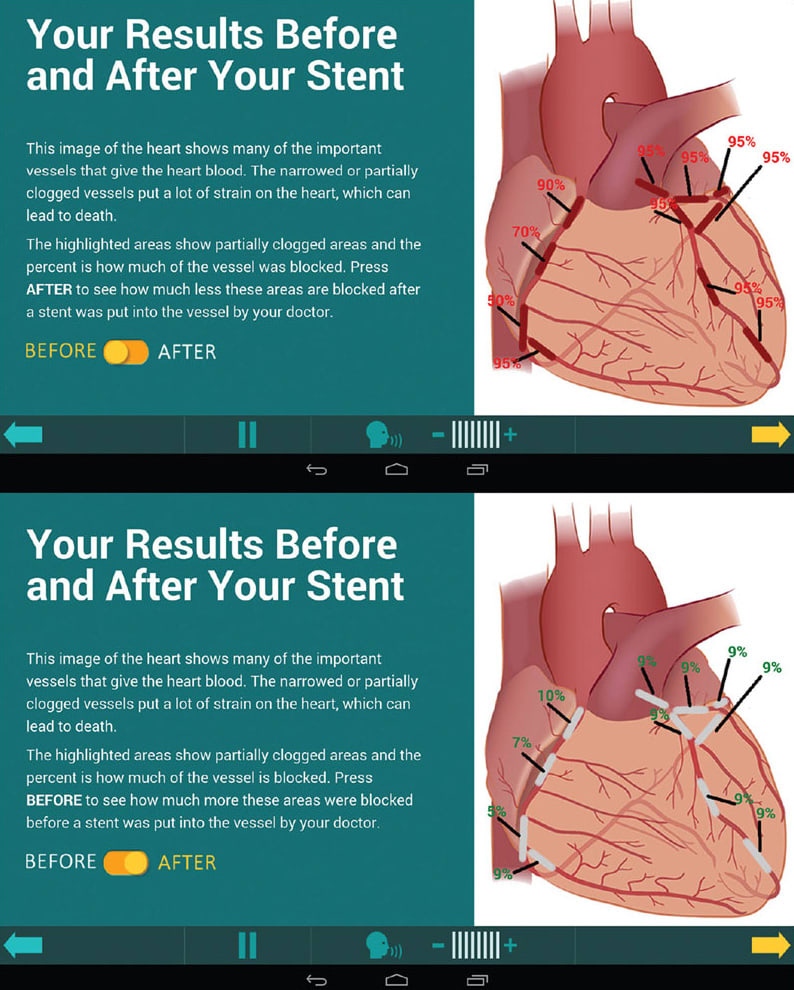MyIDEA (My Interventional Drug-Eluting Stent Education App) software was developed by researchers at the University of Illinois at Chicago (UIC) who study data-simplification to improve clinical outcomes. The tablet computer application helps heart patients with drug-eluting stents take their medications correctly.

According to Andrew Boyd, assistant professor of biomedical and health information sciences in the UIC College of Applied Health Sciences , the app uses a patient-centered narrative to help patients understand the importance of taking their medication.
For patients with a drug-eluting stent, non-adherence to their medication regimen leads to a nine-fold greater risk of death within the first year of stent placement — and an ongoing increase in mortality of 20 to 40 percent.
“Non-adherence is often due to mis-communication between medical staff and patients regarding the purpose of the medication or the specific duration of the medication,” Boyd said. “We aimed to address this gap by creating a patient-centered education application.” The app is tailored to patients by incorporating their own health information, from symptoms and treatment, to care team information. MyIDEA then prompts the patient to respond about how their symptoms have affected their lives.
A pilot study used a randomized trial to measure change in medication adherence; 24 patients were recruited and 13 received the intervention. Patients in the intervention group had a 10 percent higher medication possession ratio (MPR), a common measure of medication adherence, than patients in the control group. On average, patients spent 21 minutes using MyIDEA.
“Results from this study are promising, and will enable new and effective education programs to increase patient knowledge about their health and treatment,” Boyd said. “We observed that people spent a larger percentage of time on patient stories, focusing on problemsolving issues and critically thinking about solutions. This kind of patient-centered health information, used with an education application, is proving to be useful and progressive toward increasing drug adherence for patients.”
For more information, visit here

